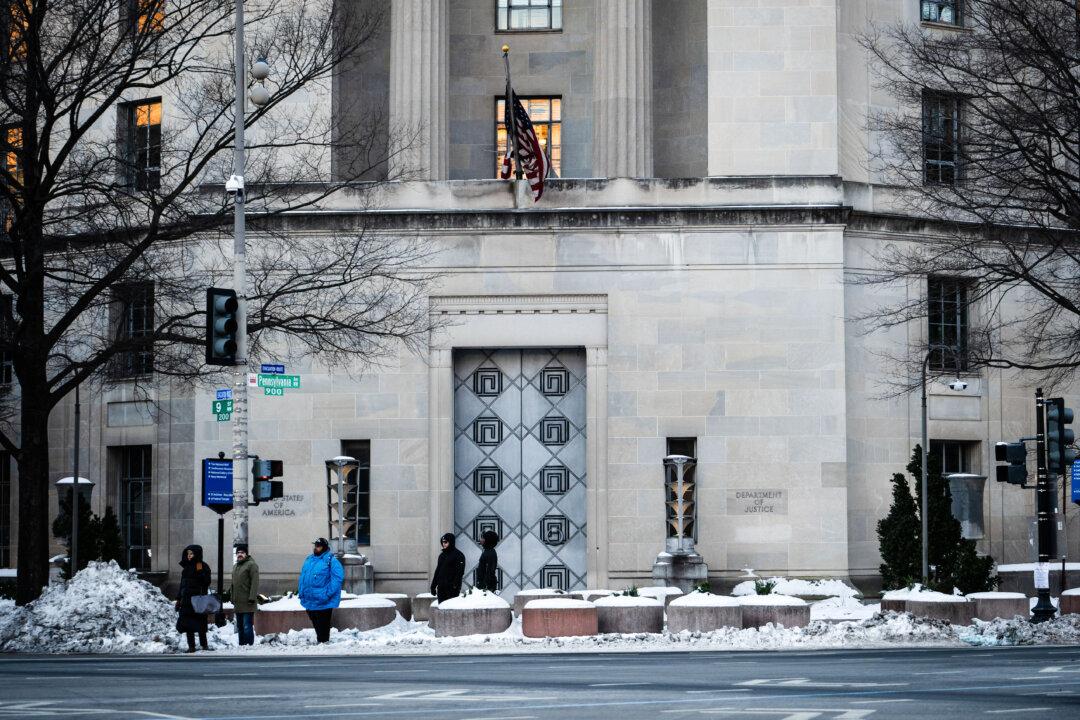China is using thousands of fake and hijacked Twitter accounts to carry out its disinformation campaign surrounding the CCP virus, according to a recent study.
Many of these accounts, which previously targeted political dissidents and Hong Kong protests, have now begun posting “propaganda and disinformation about the coronavirus outbreak,” according to ProPublica.
These 10,000 accounts did not act independently. Using computer programs, ProPublica found that the fake accounts were part of an interrelated network of more than 2,000 accounts.
Tactics
The fake accounts sought to build “momentum for particular storylines,” ProPublica explained. First, central accounts, those with “more legitimate-looking histories,” would make eye-catching posts. Then, other, more obviously fake accounts would interact with the posts, such as reposting or leaving positive comments.Whether it was about the Hong Kong protests or the current virus outbreak, these posts used hashtags to “gain visibility for an account that had few followers.”
Sometimes, “posts would use hashtags unique to the influence network, presumably to try to make them trend on Twitter,” ProPublica added.
The study listed several known hacked accounts, such as a professor in North Carolina, a college student at the University of Nebraska Omaha, a web designer in the United Kingdom, and a business analyst in Australia.
“It is unclear whether the current fake account holders hacked the accounts themselves or purchased them from elsewhere,” the study stated.
Links to the Chinese Regime
ProPublica showed that Beijing had influence over many of these accounts.For example, it pointed out that the influence network “suddenly shifted its focus to the coronavirus epidemic” on Jan. 29, six days after authorities imposed a lockdown in Wuhan, the epicenter of the virus outbreak.
That same day, OneSight, a Beijing-based internet marketing company with connections to the Chinese regime, announced the launch of a new app that would track virus-related information, and help “transmit the correct voice of China” to the world.
The company’s CEO previously worked at the Beijing city foreign propaganda department. Its clients include state media outlets and regime-friendly firms like Huawei and Alibaba.
Last year, ProPublica obtained a copy of a contract won by OneSight to boost the Twitter following of state-owned news agency China News Service. According to the Jamestown Foundation, the agency also “covertly runs overseas media organizations.”
This agency is the international media arm of the Overseas Chinese Affairs Bureau, an office in charge of influencing overseas Chinese. This office in turn is run by the United Front Work Department, a Party organ dedicated to spreading Beijing’s agenda inside and outside of China.
“Our examination of an interlocking group of accounts within our data linked the effort to OneSight,” ProPublica added.
Many of the posts expressing approval for Beijing were made by fake accounts, using the same text published by Chinese state-run media.
“Comment texts were often lifted word-for-word from state editorials, which have long served as political lodestars for government agencies and party officials,” ProPublica said.
Money
ProPublica found that in some instances, suspected Chinese operatives would offer influential Chinese-speaking Twitter users cash in exchange for posting messages favorable to Beijing.The study highlighted the case of Badiucao, a Chinese political cartoonist living in Australia.
Badiucao said he was approached by an account claiming to be an “international exchange company,” which offered the cartoonist 1,700 yuan (about $240) to tweet out specific content per post.
During feigned negotiations with the company, Badiucao said he received a sample of what he would be asked to tweet out: a 15-second propaganda clip, showing that Beijing “defeated the coronavirus and everything is back on track.”
Badiucao added that he was confident the company was working for the Chinese regime, based on their interactions.
The company eventually did not provide Badiucao with a contract, with the explanation that “upon client review, your posting style does not fit this promotional topic.”





